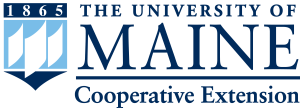Winter webinar series focuses on practical weather resources and tools for agricultural producers
The University of Maine Cooperative Extension and the Sustainable Agriculture Research and Education (SARE) program is offering a three-part webinar series focused on using weather-based tools to help agricultural producers adapt to climate change.
Each webinar will be 45 minutes in length, followed by a 15-minute question and answer session and participant discussion. The series is open to agricultural service providers and producers of all crops and scales, as well as anyone involved in agriculture.
The first webinar, "Using Weather Data and Tools available through the Maine Climate Office," will be held from 11 a.m.-noon on Jan. 23. Presented by Sean Birkel, assistant professor at the University of Maine with a joint appointment to Cooperative Extension and the Climate Change Institute, participants will learn how to navigate the Maine Climate Office website and utilize temperature, precipitation, drought, and climate models for crop production decision making.
The second webinar, "Using the Network for Environment and Weather Applications (NEWA) for crop modeling and integrated pest management," will be held from 1-2 p.m. on Feb. 22. Presented by Lily Calderwood, UMaine Extension Wild Blueberry Specialist and Assistant Professor of Horticulture, and Dan Olmstead from Cornell University, attendees will learn how to navigate NEWA and explore the tools it offers for real-time weather data summaries, crop production tools and integrated pest management forecasts.
The third webinar, "Using AgRadar to manage apples in a changing climate," will be held from 2-3 p.m. on March 27. Led by Sean Birkel and Glen Koehler, UMaine Extension associate scientist, participants will learn how AgRadar uses weather forecasts and data to inform apple production decision-making for service providers and growers.
The webinars are free and registration is required. For more information and to register visit the program webpage.
To request a reasonable accommodation contact Peyton Ginakes, at 207.933.2100, Ext. 107 or peyton.ginakes@maine.edu.
About University of Maine Cooperative Extension:
As a trusted resource for over 100 years, University of Maine Cooperative Extension has supported UMaine's land and sea grant public education role by conducting community-driven, research-based programs in every Maine county. UMaine Extension seeks to build thriving communities and grow the food-based economy, focusing on aspects from production and processing to nutrition, food safety and food security. Extension also conducts the most successful out-of-school youth educational program in Maine through 4-H which offers hands-on projects in areas like health, science, agriculture and civic engagement and creates a positive environment where participants are encouraged to take on proactive leadership roles.
About the University of Maine
The University of Maine, founded in Orono in 1865, is the state's land grant, sea grant and space grant university, with a regional campus at the University of Maine at Machias. UMaine is located on Marsh Island in the homeland of the Penobscot Nation. UMaine Machias is located in the homeland of the Passamaquoddy Nation. As Maine's flagship public university, UMaine has a statewide mission of teaching, research and economic development, and community service. UMaine is the state's public research university and a Carnegie R1 top-tier research institution. It attracts students from all 50 states and 92 countries. UMaine currently enrolls 11,571 undergraduate and graduate students, and UMaine Machias enrolls 763 undergraduates. Our students have opportunities to participate in groundbreaking research with world-class scholars. UMaine offers 77 bachelor's degrees and six undergraduate certificates, as well as more than 100 degree programs through which students can earn doctoral or master's degrees, professional master's degrees, and graduate certificates. UMaine Machias offers 18 associate and bachelor's degrees, and 14 undergraduate certificates. The university promotes environmental stewardship, with substantial efforts campuswide to conserve energy, recycle and adhere to green building standards in new construction. For more information about UMaine and UMaine Machias, visit umaine.edu and machias.edu.
























